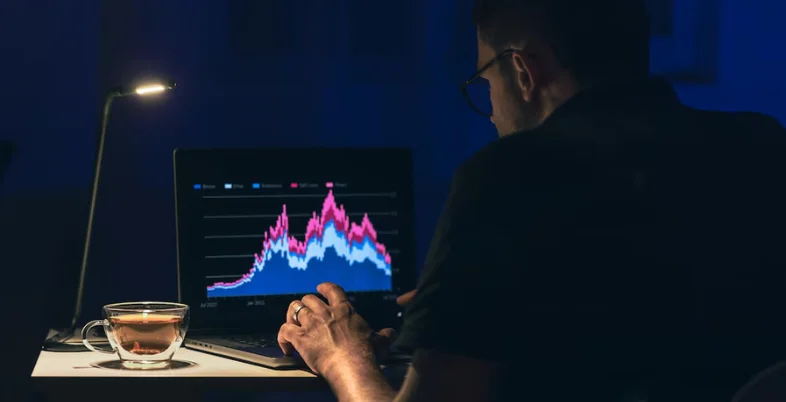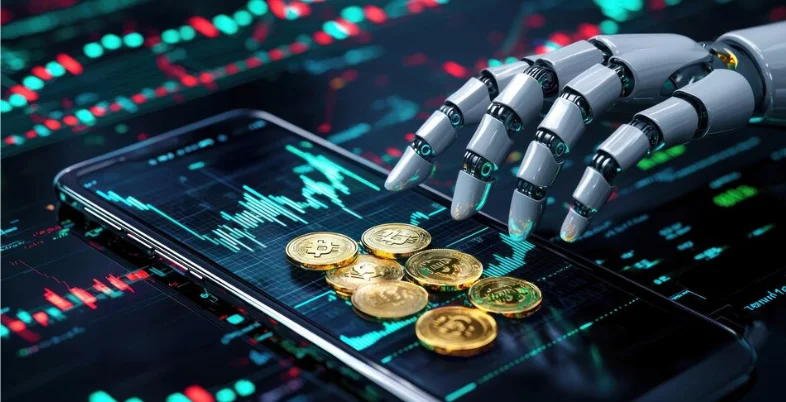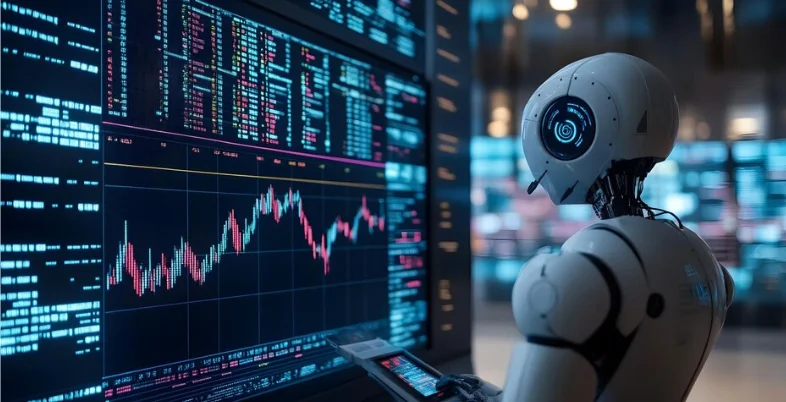The world of forex trading has evolved rapidly, and with advancements in technology, traders now have tools that were once unimaginable. One of the most exciting developments in recent years is the integration of artificial intelligence (AI) into forex trading.
AI has transformed how traders analyze markets, predict trends, and execute trades, enabling smarter and more efficient strategies. By leveraging AI, traders can make more informed decisions, reduce human error, and stay ahead of market movements.
In this article, we’ll explore how AI is being utilized to develop smarter forex trading strategies and make more accurate market predictions. We’ll also examine the role of forex robots, or automated trading systems, and how they fit into this landscape.
AI in Forex: Transforming Traditional Trading
Artificial intelligence has brought a revolutionary shift in forex trading by allowing traders to process large amounts of data in a matter of seconds. In traditional trading, investors rely on human intuition, technical indicators, and fundamental analysis to make decisions. While these strategies are still important, they are often slow and prone to human error.
AI changes the game by analyzing historical data, spotting patterns, and predicting market movements in real-time. Machine learning (ML) algorithms, a subset of AI, are used to train models that can improve over time. The more data these systems are exposed to, the more accurate their predictions become. This capability enables traders to make quicker, more informed decisions that might have been impossible using conventional methods.
How AI Improves Forex Trading Strategies
AI’s ability to process enormous amounts of market data quickly allows it to improve forex trading strategies in several key ways:

1. Analyzing Market Sentiment
AI tools can track and analyze global news, social media, and other sources of sentiment in real-time. By analyzing this data, AI can detect shifts in market sentiment, which can influence currency values. For example, positive news about a country’s economy can boost its currency, while political instability may weaken it.
Traders can leverage AI-powered sentiment analysis to adjust their trading strategies accordingly. They can act on market-moving events before most human traders are even aware of them.
2. Identifying Price Patterns
AI algorithms can quickly scan historical and real-time price charts to identify patterns and trends. These patterns, such as head-and-shoulders formations, flags, or triangles, are often indicators of future price movements. AI systems can recognize these patterns faster than human traders and can execute trades based on this information in a matter of milliseconds.
This ability to identify price patterns allows traders to enter or exit trades at optimal points, maximizing their profits while minimizing risks.
3. Backtesting and Strategy Optimization
One of the major advantages of AI in forex trading is its ability to backtest strategies. AI tools can simulate how a particular strategy would have performed in the past using historical data. This enables traders to optimize their strategies based on real-world results rather than relying on theoretical models.
By refining these strategies using AI, traders can minimize their exposure to risk and increase their chances of making successful trades.
The Role of AI in Market Predictions
AI’s predictive capabilities are one of its most exciting aspects. Market predictions are critical for forex traders as they aim to forecast future price movements. AI is particularly effective at making these predictions for the following reasons:
1. Forecasting Currency Price Movements
AI algorithms can predict currency price movements by analyzing a wide range of factors, including historical price data, interest rates, inflation rates, and geopolitical events. These predictions are made with a high level of accuracy, as AI systems continuously learn from new data and adapt their models accordingly.
By incorporating AI-generated market predictions into their strategies, traders can make more informed decisions about when to buy or sell a particular currency pair.
2. Predicting Volatility
Volatility is a key concern for forex traders, as large price swings can lead to significant losses or gains. AI can analyze factors that contribute to market volatility, such as global events or economic reports. By predicting periods of high or low volatility, AI systems can help traders adjust their strategies and manage risk more effectively.
This ability to predict volatility gives traders an edge, allowing them to navigate challenging market conditions with greater confidence.
3. Real-Time Data Processing
AI processes real-time market data faster than any human can. This allows traders to react instantly to changes in the market, whether it’s a sudden price spike or a news event that could affect currency values. With AI providing real-time insights, traders can stay ahead of market trends and make split-second decisions that increase profitability.
Forex Robots: The AI-Driven Traders
Forex robots, or forex AI advisors, are another powerful application of AI in the forex market. These robots are designed to execute trades automatically based on pre-defined rules, removing the need for human intervention. They rely on AI algorithms to analyze market conditions, identify trading opportunities, and make trades within seconds.

1. How Forex Robots Work
Forex robots use AI to monitor the market 24/7, ensuring that no opportunity is missed. They can process vast amounts of data and execute trades at the best possible moments. Traders can program these robots with specific parameters, such as entry and exit points, risk levels, and the types of trades they want to make.
Once set, forex robots can trade autonomously, allowing traders to focus on strategy development rather than execution.
2. Benefits of Using Forex Robots
The main advantage of using forex robots is their ability to eliminate emotional decision-making. Human traders often let fear or greed influence their trades, leading to mistakes. Forex robots, on the other hand, follow logic and data, making them far less prone to error.
Another benefit is their ability to trade multiple currency pairs simultaneously, something that would be difficult for a human to manage. This increases traders’ opportunities for profit while reducing the amount of time they need to spend monitoring the markets.
Conclusion
AI has revolutionized forex trading by enhancing market analysis, improving trading strategies, and enabling more accurate market predictions. Through the use of AI-powered tools like forex robots, traders can automate processes, reduce errors, and make smarter decisions.
For traders who want to stay ahead in the competitive world of forex, leveraging AI is no longer an option—it’s a necessity. As AI continues to evolve, its ability to predict market trends and execute flawless trading strategies will only become more powerful. By integrating AI into their trading toolkits, traders can boost their profitability and make more informed, strategic decisions in the ever-changing forex market.

